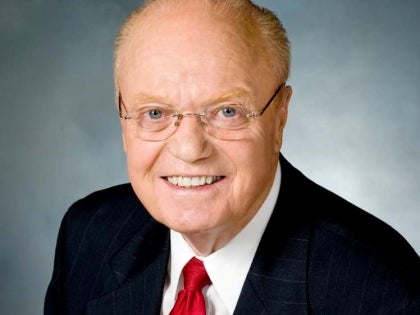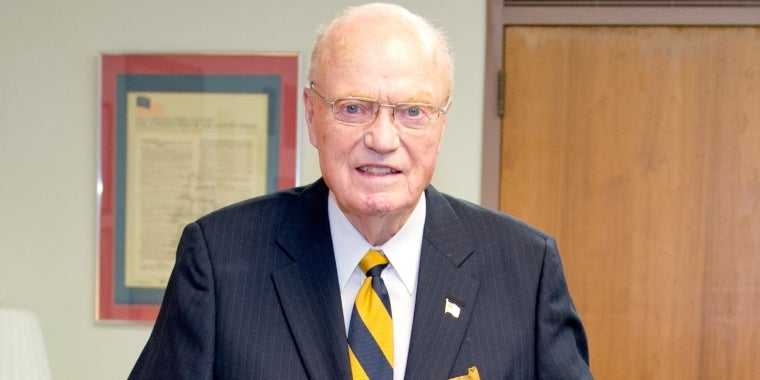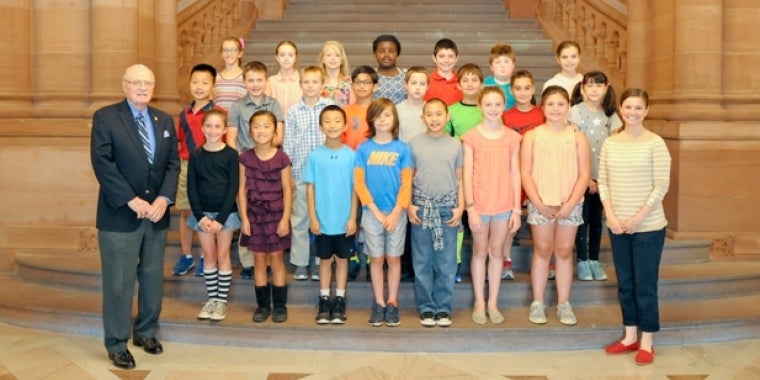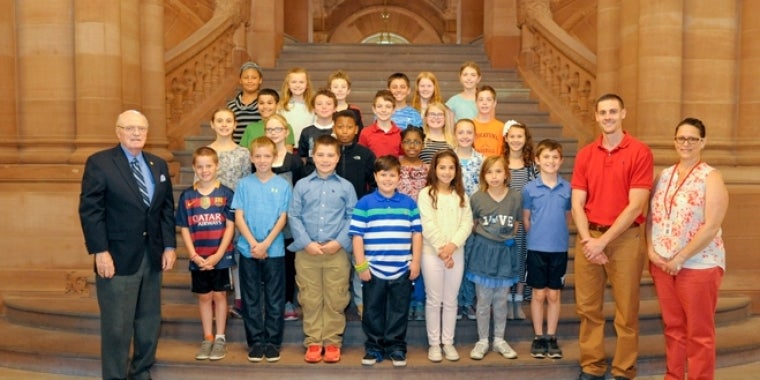
First National Side-by-side Study Of Hybrid School Buses Launched
SCHENECTADY— New York Power Authority (NYPA) President and Chief Executive Officer Richard M. Kessel and New York State Energy Research and Development Authority (NYSERDA) Vice President for Programs Robert Callender today were joined by Schenectady City School District Superintendent Eric Ely to launch the first national side-by-side study of the performance of different hybrid school bus technologies. These buses are expected to operate more cleanly and efficiently than traditional school buses, reduce greenhouse gas emissions and improve air quality.
The NYPA Hybrid School Bus Study is a three-year demonstration and evaluation program using two types of diesel-electric hybrid buses—a standard hybrid and a plug-in hybrid—traveling under the same conditions and routes as a conventional diesel school bus in urban, suburban and rural areas of New York State. Schenectady Central School District is the first of three school districts to participate in the study.
The goal of the evaluation is to compare the two hybrid buses and a conventional diesel school bus for fuel and energy efficiency, emissions reductions, reliability and maintenance costs. The study will examine how differences in bus routes, such as average speed, number of stops, idle time, hilly or flat roadways, affect performance.
The study cost, including hybrid bus purchases, a conventional bus lease and the evaluation report, totals about $664,000. Funding is being provided by NYPA with $297,000 and NYSERDA is committing $210,000. As a member of the Hybrid School Bus Buyers’ Consortium, NYPA also received $157,000 towards the hybrid buses from the National Association of State Energy Officials State Technologies Advancement Collaborative.
This Consortium, facilitated by Advanced Energy, a non-profit organization based in North Carolina, consists of members from state agencies, school districts and utilities from 11 states around the country.
NYPA purchased the two hybrid school buses from Leonard Bus Sales, Deposit, N.Y., which is also providing three years of service and technical support. The buses were built by IC Bus, an affiliate of Navistar International, and are equipped with hybrid propulsion systems manufactured by Enova Systems, Inc. of Torrance, Calif.
Brown Transportation will take title to the two hybrid buses and the conventional “baseline” diesel bus and will operate the buses for the first year of the study. The hybrid buses will be rotated with the conventional school bus on the same three routes throughout the year so that the performance of the buses can be compared.
A contract for the evaluation was awarded to M.J. Bradley & Associates LLC for $186,000. During the first year of the three-year in-service test, data will be collected from the buses as they are operated in regular service on a select group of Schenectady school bus routes which are designated as suburban. Similar test periods for urban and rural routes will be developed once the other locations are determined. The study report is estimated to be completed in 2012.
Shenendehowa Central School District has also agreed to participate in the first year of this study and will provide data from operating its own plug-in hybrid bus on rotation with a conventional diesel school bus on the same routes within its district. This data will help broaden the study results.
For the study, NYPA and NYSERDA put together a project team to serve as the advisory committee through all phases of this project. The Project Team includes NYPA, NYSERDA, Schenectady Central School District, Brown Transportation, Shenendehowa Central School District, Leonard Bus Sales, IC Bus, Advanced Energy, New York School Bus Contractors Association, New York Association for Pupil Transportation, New York State Department of Education, NYS Dept. of Environmental Conservation and NYS Dept. of Transportation.
Since the early 1990s, NYPA has put into service over 1,000 electric and hybrid-electric vehicles in its own fleet and the fleets of its customers throughout New York State. Those vehicles have traveled over 10 million miles displacing an estimated 35,000 barrels of oil and avoiding over four tons of CO2. In 2000, the Electric Drive Transportation Association, the preeminent industry group dedicated to advancing electric drive, recognized NYPA as the first utility in the Northeast to pass the million-mile mark for combined electric vehicle mileage.
MORE FACTS ABOUT NYPA HYBRID BUS DEMONSTRATION PROGRAM
All three buses will be the same base model with the same diesel engines, with the conventional bus serving as the “baseline” bus for the study. The hybrid buses represent two different types of hybrid technology. There is a standard hybrid bus which combines a storage battery and electric motor with the diesel engine. There is also a plug-in hybrid which has a larger storage battery than the standard hybrid, an electric motor, an on-board charger and a wall plug connection.
The hybrid buses operate with their engines running at a more constant level than conventional buses, with additional power supplied by the storage batteries when accelerating. The battery on the standard hybrid gets its power from the regenerative braking system. During braking the electric motor acts as a generator, producing electricity that goes to the battery and is stored for use during acceleration. The battery on the plug-in gets its power from the both its regenerative braking system and the electric grid. This battery, which is larger, supplies power to the electric motor during acceleration and also provides supplemental power to the diesel engine at other times, so the energy stored in the battery gradually depletes over the course of the day. The battery is re-charged overnight when the bus is plugged into an electric outlet.
Fuel/energy use and maintenance data will be collected by the bus operators on a monthly basis. All buses used for this evaluation will be equipped with the Navistar Aware system that will collect data such as miles traveled and fuel consumed. Other data collection methods will also be used including manual records of maintenance reports and downloads from the hybrid buses’ energy management systems.
Total Project Cost: $664,000
Standard Hybrid Bus: $166,000
Plug-In Hybrid Bus: $219,000
Lease for Diesel Bus:$ 72,000
Maintenance/Service:$ 21,000
Study/Evaluation:$186,000
STATEMENTS IN SUPPORT OF HYBRID BUS DEMONSTRATION PROGRAM
Richard Kessel, president and chief executive officer of the New York Power Authority, said: “This groundbreaking effort by the Power Authority and our partners will put New York in the forefront of the nation for determining the benefits of different hybrid school bus systems for cutting fuel use and emissions and will support Governor Paterson’s goals to make New York more energy independent and improve air quality. At a time when energy costs are growing and budgets are shrinking, the study results will help school districts across the United States make educated choices about their transportation needs.”
Robert G. Callender, vice president of programs for the New York State Energy Research and Development Authority, said: “NYSERDA and its partners have actively engaged school districts across the state to implement hybrid technology into their school bus fleets, which could reduce fuel costs by 40%, significantly cut greenhouse gas emissions, and improve local air quality while adding comfort and reducing adverse health effects to bus riders. Not only is today’s announcement in line with Governor David A. Paterson’s vision of severing our state’s reliance on imported oil, but it also meets his Clean Energy Task Force recommendation of investing in clean-energy business and systems for continued economic growth.”
Eric Ely, superintendent of Schenectady School District, said: "We are very excited to be part of this project and are proud to participate in any program that might lead to an improved climate. We talk about the environment and emphasize the importance of going green in our schools every day. It is vital that we all recognize the need to explore new technology and the impact it may have on our environment, the cost of doing business and the efficiency of our overall operations. This study is certainly a step in the right direction."
Ewan Pritchard, hybrid programs manager at Advanced Energy, said: "The delivery of these buses signifies a very important milestone--theconclusion of Phase II of ourPlug-In Hybrid Electric School Bus Program and the beginning of a new phase in commercializing this technology. We'vemonitored the performance of these newplug-in hybrid buses for a year and a half, and will continue to do so to help ensure they perform well."
Robert Brown, president of Brown Transportation, Inc., said: "Brown Transportation is excited to be a part of the HybridSchool Bus Demonstration Project. I look forward to partnering on this project with Schenectady City School District, NYPA, NYSERSDA, and the rest of the project team.It is a tremendous opportunity to be involved in shaping the future of School Bus Transportation.”
Congressman-Elect Paul Tonko said: "This is the kind of project that can serve as an example to jump start efforts on a much larger scale to use technology to help solve our energy problems and create greater efficiencies. I applaud the New York Power Authority, NYSERDA, the Schenectady School District and the private companies who have collaborated in an effort to provide a road map that other communities across the country can follow.”
State Senator Hugh T. Farley said: “This is a practical, ‘real world,’ evaluation of a potentially cost- and energy-saving technology. Our schools face the fiscal challenge of responsibility to their taxpayers, and the environmental challenge of leaving a cleaner world for future generations. I commend NYPA, NYSERDA, and the Schenectady School District for taking this initiative.”
Assembly Republican Leader James Tedisco said: "At a time when government at all levelsis exploring ways to control costs and increase efficiencies, hybrid technologies offer a terrific opportunity to advance a cleaner, greener environment while reducing fuel costs. This study will help provide further details about the efficiencies that can be achieved by utilizing hybrid technology in school buses. I am pleased that the Schenectady School District will beleading the way in participatingwith this important study.”
State Assemblymember George Amedore said: "This is a great day for the Schenectady School District, NYSERDA, NYPA, Brown Transportation, and all the partners that made this possible. Outstanding public and private partnerships are vital in fully moving our communities into the 21st century; everyone wins when we work together. Hybrid bus technology is not only good for the environment, but it is good for the school district's bottom line. Continued investments in clean and green technology provide a great return on investment both economically and environmentally."
Schenectady Mayor Brian U. Stratton said: “I applaud the efforts of the Power Authority and NYSERDA to bring this exciting pilot project to our Schenectady City School District. Providing a more energy-efficient and environmentally friendly transportation alternative for our children is another way we can help to reduce the cost of education, while working to create a cleaner environment for the community we all share.”
David Hillman, director of marketing for IC Bus, said: “IC Bus is excited to be part of this side-by-side study of hybrid school buses. We are committed to the development of new technologies—such as hybrid buses—that provide improvement in fuel economy and reduction in emissions.”
Mike Leonard, president of Leonard Bus Sales, Inc., said: “This project helps to ensure New York State’s continued leadership in providing safe and reliable student transportation in an economical and environmentally responsible fashion. Leonard Bus Sales is proud to be a member of the hybrid school bus project team.”
Karen Paquette, president of the New York School Bus Contractors Association, said: “These are exciting times for the school bus operator industry. Governor Paterson, the New York Power Authority, NYSERDA and everyone involved should be commended for their efforts to help expedite the process of bringing these environmentally-friendly technologies to market. Hybrid-electric bus technology has already begun demonstrating its validity in other applications such as the transit industry. In New York City hybrid diesel-electric buses are increasing fuel efficiency by 30%, eliminating tailpipe smoke and reducing particulates by up to ninety percent. We are hopeful we can demonstrate similar results in New York school bus fleets.”
Mike Smith, director of the Passenger Carrier Safety Bureau of the NYS Department of Transportation, said: “The New York State Department of Transportation’s Passenger Carrier Safety Bureau enthusiastically supports NYPA and NYSERDA in their efforts to find green alternatives for school transportation. Reducing emissions for the school children in NYS is one of our main priorities and this can only be achieved through new technologies such as these. We will continue to work with school districts to ensure that the new hybrid vehicles, as well as all pupil transportation vehicles in the state, operate at the highest safety standards in the country.”
Marion Edick, Director, Pupil Transportation, New York State Education Department said: “We are pleased that New York State school districts have been chosen to participate in this important energy efficiency and environmental safety study for pupil transportation. Every day our schools transport 2.3 million students on yellow school buses.” This passenger volume, coupled with the wide variety in population density and geographic terrain, make New York schools ideally suited for these demonstrations.”
Michael Seilback, vice president, Public Policy & Communications for the American Lung Association of New York, said: “NYPA and NYSERDA are taking a proactive step to limit pollution from traditional diesel engines which are the dirty dinosaurs of transportation. We hope these results will spur decision makers to choose newer, cleaner technologies and we are confident that the results of this study will show that conventional dirty diesel engines should be left in the past.”



